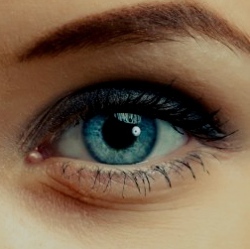
Scientists are ready to begin trials of a new, fully implantable bionic eye. It is expected that this bionic eye will not only improve vision but it will also be better than the current vision restoration devices. The Phoenix99 is a fully implantable eye which has world’s first neural stimulation technology.
It has already been tested and demonstrated successfully by a team of surgical experts in pre-clinical work. This device received a massive funding boost recently which helped the scientists to take their work to the next level, Human Implantation.
“We were really excited by the first trial because it proved the technology and implementation technique works. Patients will ‘learn’ to use the technology, in the same way a person implanted with a cochlear ear implant ‘learns’ to hear electrical impulse” said Greg Suaning.
The scientists at University of New South Wales were working on bionic eye technology since 1997, with an aim to restore the sight of people affected by Retinitis Pigmentosa, one of the leading cause of blindness in younger people, and Macular Degeneration.
There are 2 million people around the world that are affected by Retinitis Pigmentosa. It’s a degenerative condition that can be found in patients in their 30s. Gradually, it can lead to complete blindness in round about 10 years. The degeneration can only be slowed down with medicines, it cannot be reversed. Also, the medicines are available in developed countries only and they are expensive too.
One of the modern ways of restoring sight of people affected with Retinitis Pigmentation is via bionic vision. In 2012, a team tried with a partially implanted prototype device with three patients of Retinitis Pigmentation.
The device was made up of 24-electrode array with some external devices which allowed the patients to see spots of light called Phosphenes. The special cameras on the device helped the users to get a sense of distance. The Phosphenes appeared brighter when still objects came closer.
